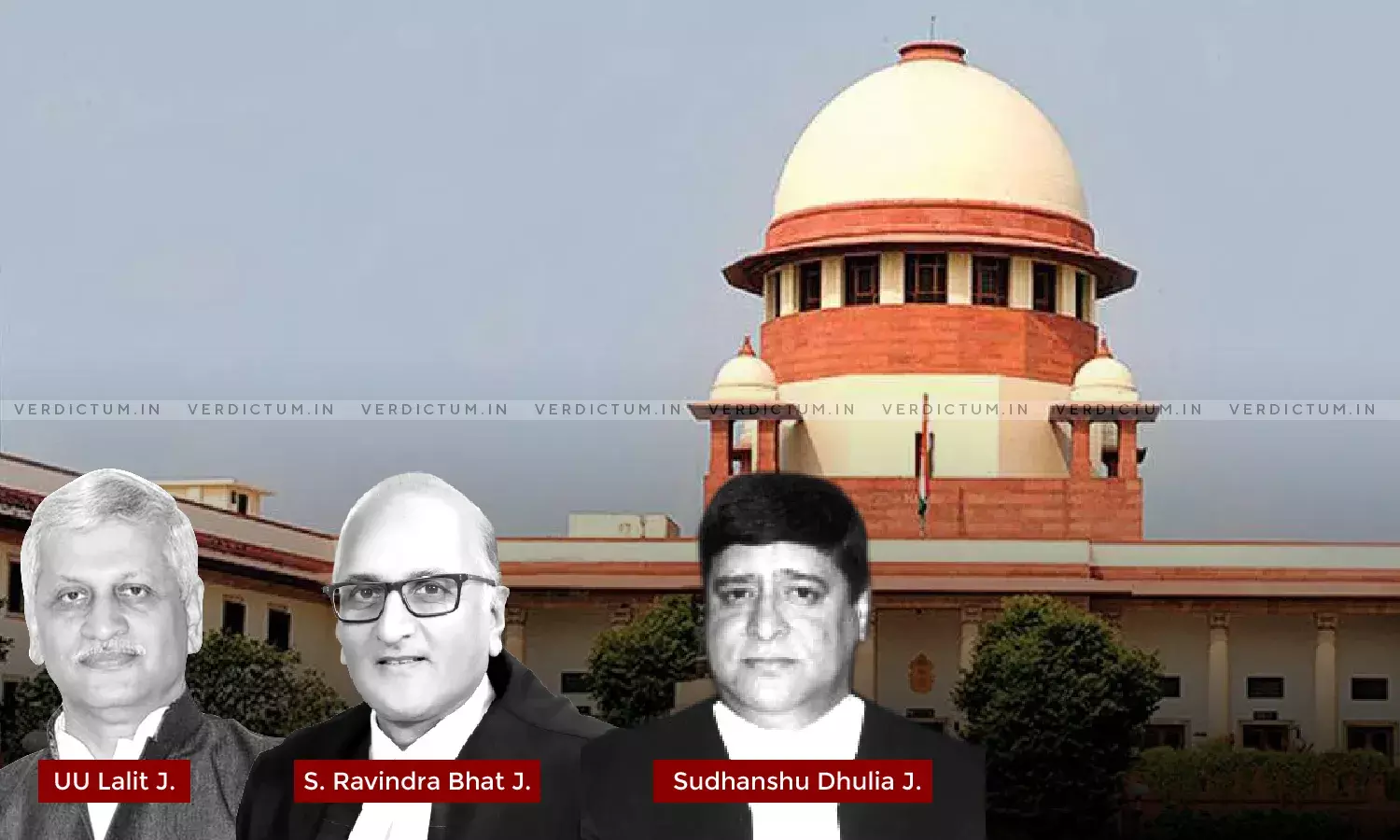IT Act 1961 - Proper Treatment In Accounts and Compliance with Act Necessary To Claim Deduction – SC Affirms

A Supreme Court Bench of Justice Uday Umesh Lalit, Justice S. Ravindra Bhat, and Justice Sudhanshu Dhulia held that merely stating a bad and doubtful debt as an irrecoverable write-off without the appropriate treatment in the accounts, as well as non-compliance with the conditions in Section 36(1)(vii), 36(2), and Explanation to Section 36(1)(vii) of the Income Tax Act 1961 would not entitle the assessee to claim a deduction.
Counsel Kavita Jha appeared for the Assessee before the Apex Court.
In this case, the Assessment Officer (AO) issued a notice under Section 143(2) of the IT Act, and also under Section 142(1) of the Act, calling for various details from the assessee with regard to its return for the assessment year 2009-2010. The scrutiny assessment was completed by the AO under Section 143(3), determining the total income of the assessee at Rs. 87,880/-.
The assessee contended that an amount of Rs. 10 crores was deposited with a private limited company towards the acquisition of commercial premises, two years prior to the assessment year in question. It was contended that the project did not appear to make any progress, and consequently, the assessee sought the return of the amounts from the builder. However, the latter did not respond. As a result, the assessee's Board of Directors resolved to write off the amount as a bad debt in 2009. It was also contended that the amount could also be construed as a loan since the assessee had "financing" as one of its objects.
The AO disallowed the sum of ₹ 10 crores claimed as a bad debt in determining its income under "Profits and Gains of Business or Profession". Aggrieved, the assessee appealed before the appellate Commissioner (CIT (A)).
The CIT(A) confirmed the disallowance on account of bad debts and interest. A further appeal was preferred to the ITAT, which allowed the assessee's plea. The Revenue sought an appeal to the Bombay High Court under Section 260A of the IT Act. The Bombay High Court ruled that no question of law requiring a decision arose in the appeal and consequently declined to entertain the Revenue's plea.
An appeal was preferred before the Supreme Court by the Revenue.
The Supreme Court analysed the various provisions of the Act that were applicable to the case, and opined that "It is thus evident that merely stating a bad and doubtful debt as an irrecoverable write off without the appropriate treatment in the accounts, as well as non-compliance with the conditions in Section 36(1)(vii), 36(2), and Explanation to Section 36(1)(vii) would not entitle the assessee to claim a deduction." The Court also relied on the position taken in Catholic Syrian Bank Ltd. v. Commissioner of Income Tax, Thrissur for the same.
Further, the Court noted that there was no material to substantiate the submission that the amount of Rs. 10 crores was given for the purpose of purchasing constructed premises. The Court opined that the amount could not be construed as a loan as the duration of the advance, the terms and conditions applicable to it, interest payable, were not established.
The Court also opined that there was nothing on record to suggest that the requirement of the law that the bad debt was written-off as irrecoverable in the assessee's accounts for the previous year had been satisfied.
The Supreme Court held that the amount could not be written off because the assessee's transaction was for acquiring immovable property, which is of the nature of capital expenditure and could not be treated as a business expenditure.
Therefore, the Supreme Court held that "the assessee's claim for deduction of ₹ 10 crore as a bad and doubtful debt could not have been allowed. The findings of the ITAT and the High Court, to the contrary, are therefore, insubstantial and have to be set aside.", and the Revenue's appeal succeeded.
Cause Title - PR. Commissioner of Income Tax 6 v. Khyati Realtors Pvt. Ltd.
Click here to read/download the Judgment

